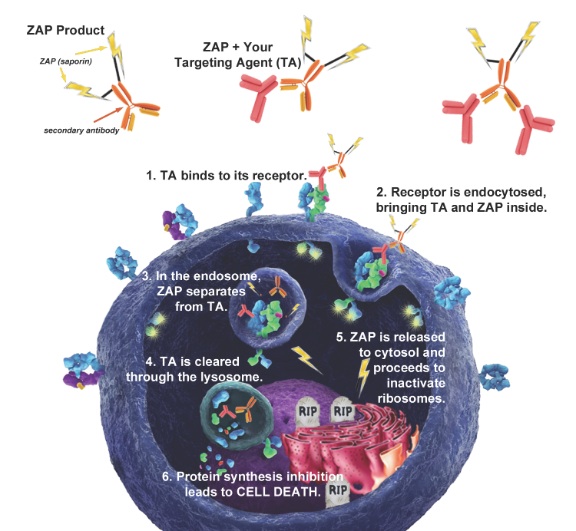Custom Biotinylation, when the “one-step-kit” doesn’t quite meet your needs.
Proteins come in all shapes and sizes and don’t always contain a ready-to-conjugate binding site. This and other variables can cause you to look toward one-step kits, often leaving you with un-purified and un-verified conjugate.
Let the experts in the field help provide you with the most effective conjugate while retaining the functionality of each of the components. Contact us now to get started discussing the strategy that best meets your needs.
Why biotinylate through Advanced Targeting Systems?

The streptavidin-biotin interaction has found extensive use as a research tool. The bond created between streptavidin and biotin is rapid and essentially non-reversible, unaffected by most extremes of pH, organic solvents, and denaturing reagents. A variety of molecules, including lectins, proteins, and antibodies, can be biotinylated and reacted with streptavidin labeled probes or other detection reagents for use in biological assays.

With each conjugation, you will receive biotinylated targeting agent AND the Biotin-Z Internalization Kit, produced by Advanced Targeting Systems, Inc. Each kit contains all the components needed to allow your targeting agent to be screened quickly and economically to provide specificity, functional binding, internalization, and EC50 determination.
The key component of the Biotin-Z Internalization Kit is Streptavidin-ZAP; Streptavidin chemically attached to Saporin, the most potent (and safest for use in the laboratory) of the plant ribosome-inactivating proteins. Streptavidin-ZAP “piggybacks” onto YOUR biotinylated material in order to evaluate the ability of the reagent to internalize upon binding to its receptor. Using Streptavidin-ZAP and biotinylated targeting agents, specific cytotoxins can be created JUST BY MIXING!
If you’re looking for a purified and verified conjugation, let the experts at ATS help you.
Let us do the work making it “zero” hands-on time for you.
Data sheets accompany all biotinylations and include:
- Protein Concentration Verified by Bicinchoninic Acid Assay (BCA assay)
- Average chemical ratio of moles of biotin to moles of protein
- Average effective molecular weight
